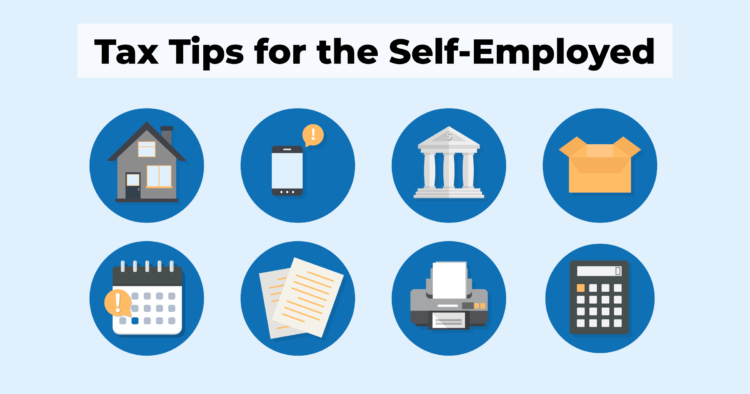
Being self-employed offers many benefits, such as flexibility and autonomy. However, it also comes with the responsibility of managing your own taxes. Understanding how you are taxed and what expenses you can deduct is crucial for maximizing your earnings and staying compliant with the tax authorities.
Here are some essential tax tips for the self-employed to help you navigate the world of taxes with confidence.
1. Know What Income Is Taxable
As a self-employed individual, it's vital to be aware of what income is taxable. Taxable business income includes any money you earn from activities carried out with the intention of making a profit. This encompasses earnings from professions, trades, and manufacturing. Make sure to report all your business income accurately to avoid potential tax issues in the future.
2. Save for Taxes
Unlike employees who have taxes automatically deducted from their paychecks, self-employed individuals are responsible for setting aside money for taxes on their own. In most cases it’s recommended to save around 25-30% of your income for taxes. Creating a separate savings account specifically for taxes can help ensure you have the necessary funds when tax season arrives.
3. Understand and Prepare for Tax Instalments
Depending on your income level, the Canada Revenue Agency (CRA) may require you to make quarterly tax installments to cover your potential income tax liability. These installments are meant to help you manage your tax obligations throughout the year, rather than facing a significant tax bill during filing season. Be aware of the installment dates: March 15, June 15, September 15, and December 15 of each year. Count these installments towards the overall amount you are saving for taxes.
4. Know What Expenses Are Tax Deductible
One of the significant advantages of being self-employed is the ability to deduct business-related expenses from your taxable income. Common deductible expenses for self-employed individuals include home office expenses, cell phone bills, bank fees, office supplies, and inventory costs. However, it's essential to keep thorough records and ensure that these expenses are legitimate business expenses. For a comprehensive list of eligible deductions, visit the CRA website or consult with a tax professional.
5. Keep Records
Maintaining accurate and organized records is crucial for any self-employed individual. Keep track of all your deductible expenses and income for at least six years in case they are ever questioned by the government. Proper record-keeping not only ensures compliance with tax regulations but also simplifies the tax filing process and minimizes the risk of audit-related complications.
6. Consult a Professional
Navigating the complexities of self-employment taxes can be daunting, especially if you're unfamiliar with tax regulations and exemptions. Hiring a bookkeeper or accountant is a wise investment that can save you time, money, and headaches. A tax professional can help you identify all eligible deductions, take advantage of tax-saving opportunities, and ensure that your tax filings are accurate and timely.
Conclusion
In conclusion, understanding and managing your taxes as a self-employed individual is vital for financial success and compliance. Be proactive in learning about taxable income, setting aside funds for taxes, and keeping records of your deductible expenses. When in doubt, seek guidance from a tax professional who can provide personalized advice tailored to your unique circumstances. By following these tax tips, you can confidently navigate the world of self-employment taxes and focus on building a thriving business.
Disclaimer
All examples are for illustrative purposes only and are not intended to provide individual financial, investment, tax, legal or accounting advice. This material is for general information and is subject to change without notice. Every effort has been made to compile this material from a reliable source. However, we cannot guarantee that information will be accurate, complete and current at all times. Before acting on any of the above, please make sure to see a financial professional for advice based on your personal circumstances.
